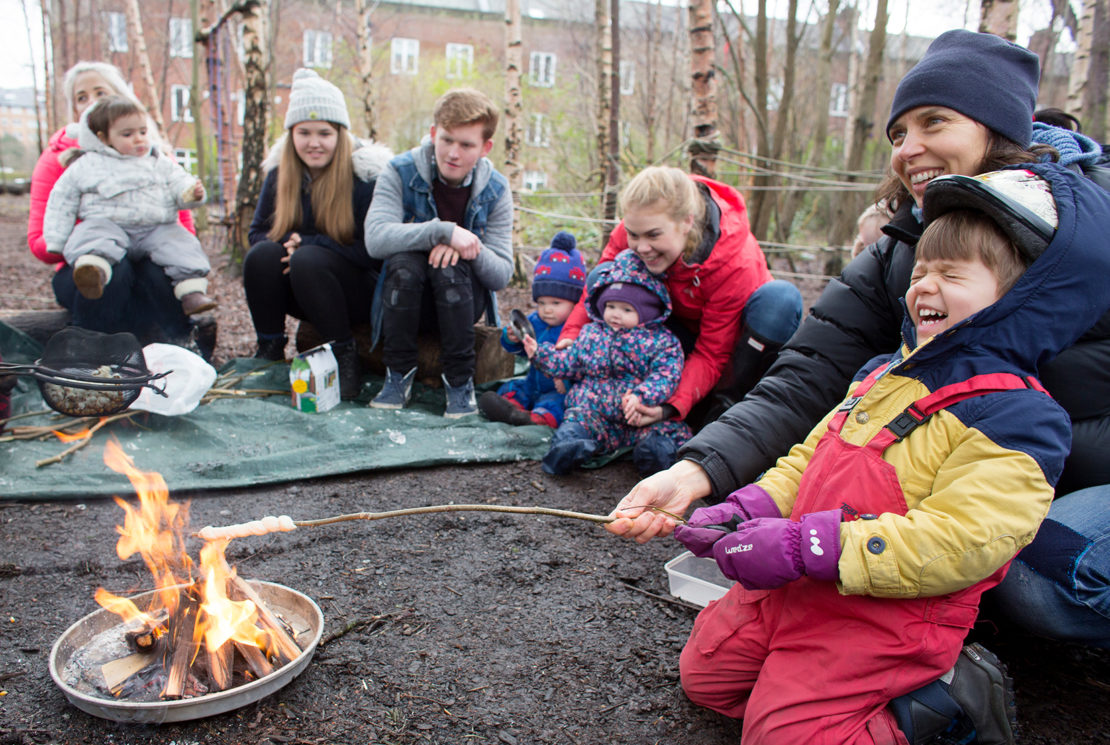
How Scotland is tackling the democratic deficit, from the ground up
On a chilly February morning in Glasgow, Stephanie Anthony and her three-year-old son Ilan are perching on a log in front of a small bonfire. They are making popcorn with kernels, using two sieves tied together with string, and are surrounded by a warm circle of toddlers, mums, dads, aunties, grannies and childminders from the local area.
A few yards away, Monroe, two, is also 'cooking', sloshing earth and grass carefully in a saucepan in the mud kitchen. Preschoolers Reuben and Benjamin are making a woodchip path, wheeling little barrows back and forth from a large pile. On the adjoining meadow, dogs and their owners enjoy a stroll and a chat. A colourful signpost arrow points straight ahead for 'Wonderland'.
It is an urban idyll of sorts. This piece of vacant land on the edge of Glasgow's residential west end – known as the Children's Wood and North Kelvin Meadow – would probably be a building site now if left up to Glasgow City Council. But in December, after a five-year campaign to keep it in use for the community as wild space, the Scottish Government overruled the local authority, which had granted permission for luxury flats to be built on the site. The sale of land to developer New City Vision was stopped in its tracks.
Campaigners are now looking at the possibility of community buy-out to ensure it continues to be used by local nurseries, primary and secondary schools – as well as the group's own forest schools, outdoor play, gardening groups and others.
"I don't think the council realised how much it meant to us," says Anthony. "We've fought so hard. But if local democracy had been working we wouldn't have had to fight against the lobbying of private companies."
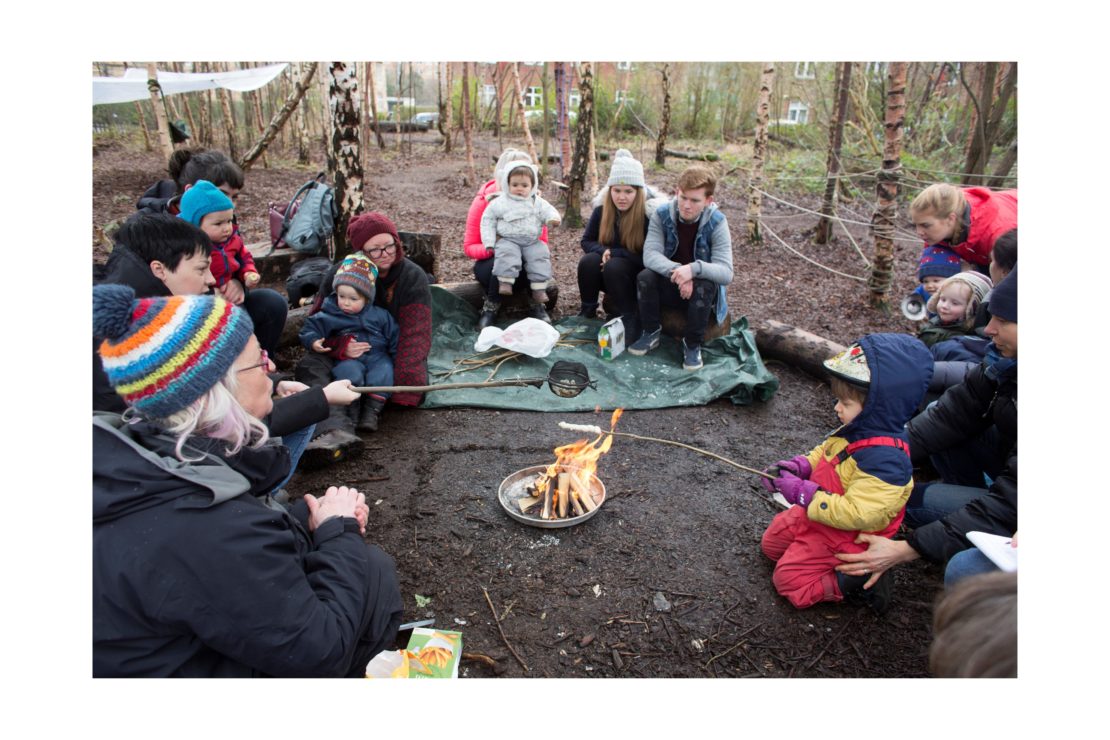
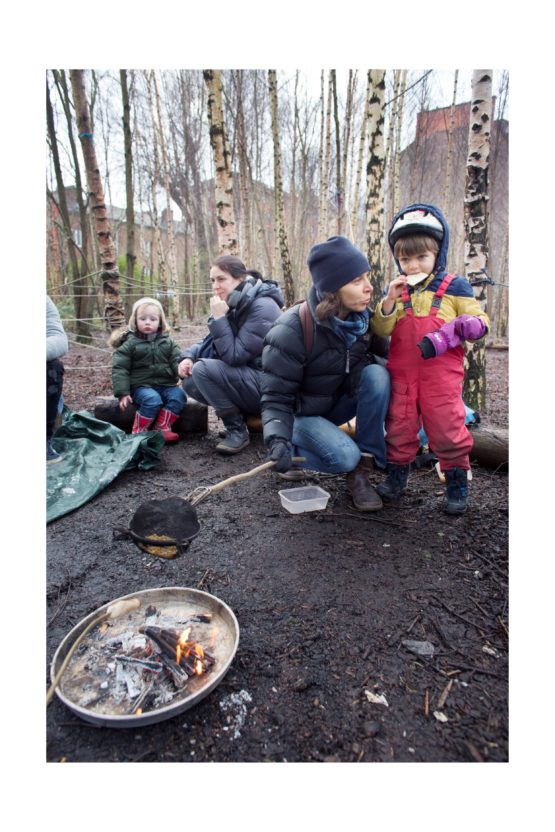
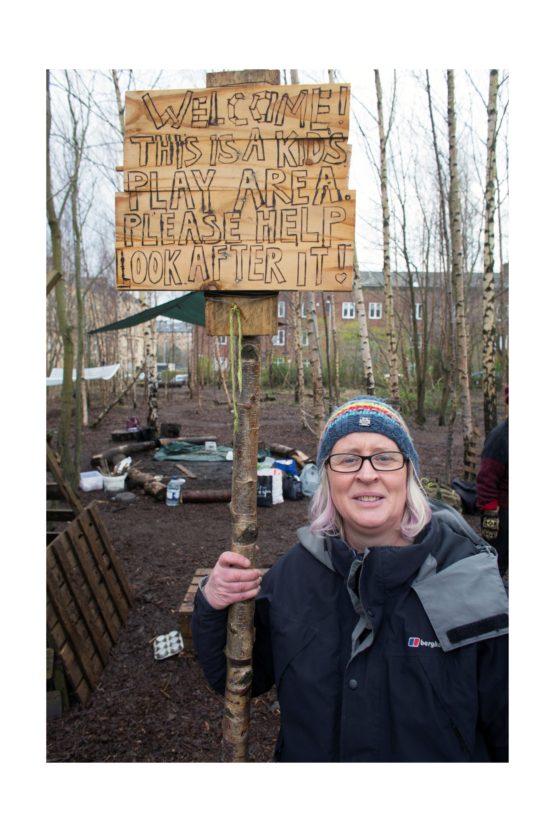
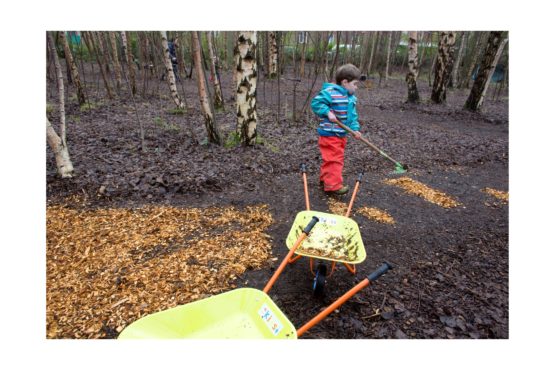
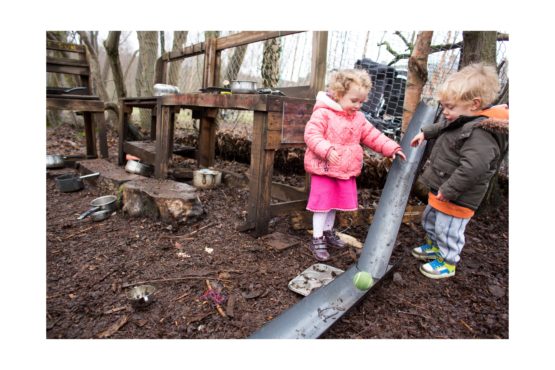
There is a growing sense – from activities, academics and political commentators alike – that we are experiencing a clear democracy deficit. Questions are being raised about that the legitimacy of the politicians supposed to serve us. Does voting alone constitute democracy?
At the last general election, around two-thirds of those able to vote did so, while in local elections only about 26 per cent turn up to polling stations. And it is particularly the poor – and the young – who don't participate and for whom policies are not created.
The issue is brought into sharpest focus at a local level. Two years ago research by Scotland's first Commission on Strengthening Local Democracy claimed radical democracy reform was needed in response to "unacceptable levels of inequality".
And it is in Scotland, where many became politically emboldened and active – sometimes for the first time – during the 2014 independence referendum, there is a growing movement to realise that reform.
November saw the launch of Our Democracy: Act as if we own the place, a year-long coalition campaign that will see events held across Scotland to encourage citizens to imagine what their community would look like if they made the decisions, even for a day. Groups will then be encouraged to take steps to make those changes happen.
Willie Sullivan, director of the Electoral Reform Society Scotland, and author of The Missing Scotland, about the million-plus Scots who don't vote, claims the grassroots approach is key.
Sign up to our newsletter
"Real democracy needs people to come together to debate and come up with ideas," he says. "Yet simply voting doesn't allow for discussion or debate.
"The promise of democracy is that you all have an equal voice. Yet the greatest inequality is the inequality of power. That's part of the breakdown of trust. People know that there are some who can pull those levers of power while others cannot access them."
Reports will be written up following each planned meeting – from Dundee to Inverness to Kirriemuir in Angus – and submitted to the Scottish government's consultation on the decentralisation of government. The scope for its plans is currently being finalised.
"In Scotland we are always told to manage people's expectations," Sullivan says. "But in this case we want to raise them, to give them confidence that we don't need to wait for permission. There is a bubbling feeling that maybe we can do it ourselves."
Emily Cutts, who initiated the Children's Wood just after the birth of her second child, can relate to that. The power of positive thinking was crucial, she claims, in turning a waste ground into a nurturing place for the whole community.
"Everything that we did was guerrilla," she says. "My intention was to signal that we'd won from the beginning." Yet it was an uphill struggle. Councillors told them the planned development was a done deal, others said the Children's Wood was a nice idea that would never work.

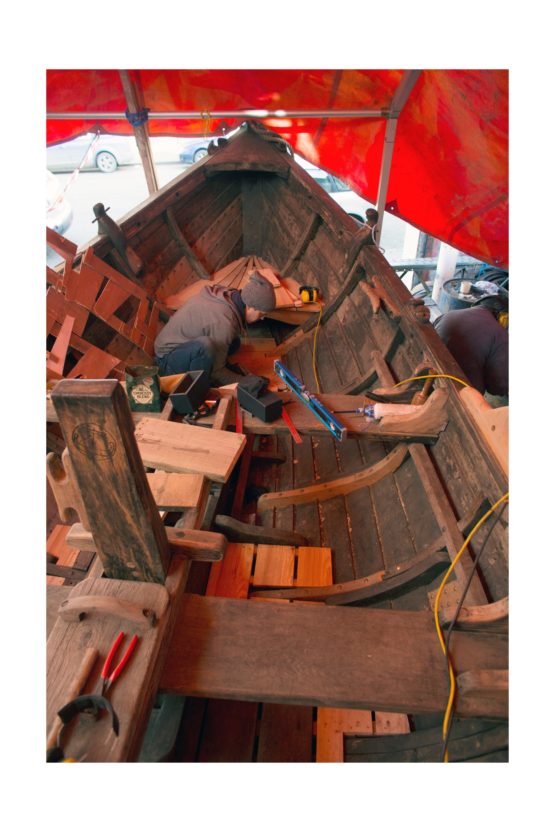
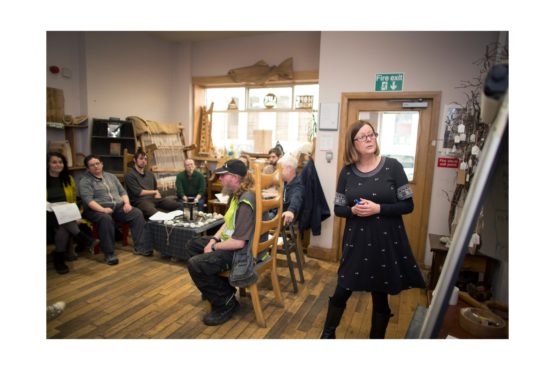
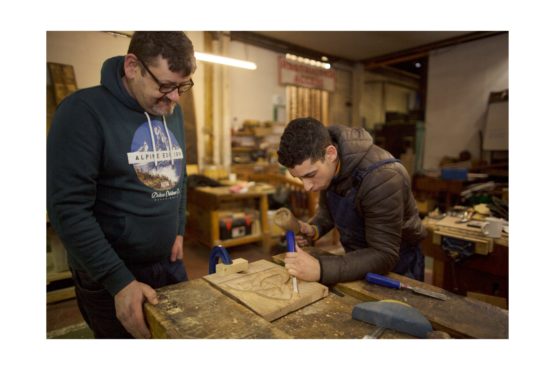
So they set about making it official, registering the playgroup, getting nurseries and schools using the land and organising community events from storytelling to fireside songs. One of the most important things, according to Coutts, was to be optimistic. "And even when it felt like we'd had a setback we also found solutions."
Look around Glasgow – a city known for its fighting talk – and there is plenty to inspire. Kinning Park Complex, in the city's southside, is a former primary school turned community centre, which the council decided to close 21 years ago this May. The locals had other ideas, squatting the building for 55 days and saving it for the deprived areas surrounding it. A few miles further south, Govanhill Baths started running its first swimming lessons 16 years ago last month. Here too it was a local community occupation, and a hard won campaign, that brought it back to life after council closure.
Robin McAlpine, director of the Common Weal, a "think and do tank" set up ahead of the Independence Referendum, has huge admiration for these campaigns and others like them. But the fact that they are needed at all makes him downright angry.
"If you had a functioning local democracy you wouldn't need to fight like this," he says, fresh from the frustrations of trying to help a group in Aberdeen stop land being sold off to developers. They can't get legal advice and the odds are stacked against them.
Examples of similar power imbalances litter the country. In Edinburgh campaigners in the Old Town are fighting on a range of fronts to stop what they see as the overdevelopment of the World Heritage site. And across Scotland – from Stirlingshire to Aberdeenshire and beyond – communities are fighting off development plans.
Explore
Visiting a 'creative hub' on a remote Scottish island Participatory budgeting, explained A visit to the People's Bank of Govanhill New money: Do local currencies actually work?"If there's one thing that is truly exhausting it is taking on a bureaucracy when you don't have one of your own," says McAlpine. "I've seen people burn out so many times. When you are campaigning for something like this you are always fighting against a better-resourced opponent."
"When you ask local politicians about it they say all people care about is getting their bins emptied. In fact they care deeply about other values, about their local area, families and communities. To say otherwise is just wrong."
For him there is another way – participatory democracy that would see communities take on the issues that mattered – by establishing a Citizen's Assembly to act as a second chamber to the Scottish Parliament. In coming weeks Common Weal will launch a paper on the proposal in which they suggest selecting a random, representative sample of 73 members of the public to fulfil this role for at least one year. It is proposing a two-year trial that he says could help revolutionise democracy.
Interest in sortition, which sees citizens selected at random in response to the belief that power corrupts, is growing worldwide. But for its critics it's difficult to imagine what it would mean in practice.
At one charity in Govan, Glasgow's former shipbuilding area, a version of sorts already exists. Galgael, which aims to rebuild both individuals and the community through purposeful activity, from boat-building to carving and selling surplus timber, holds a monthly assembly for volunteers and staff, as part of its commitment to a democratic model. Though there is also a board, the important decisions are taken here.
Galgael was founded in 1997 by Gehan Macleod and her visionary husband Colin, who died in 2005 aged just 39. It was born out of Pollok Free State, an early 90s treetop occupation Colin instigated to protest against the building of the M77 through the public woodlands in the city's Pollok Park. They failed to stop the road but succeeded in creating a community with new skills and purpose; and brought that back to Govan.
Today Macleod is facilitating the assembly with warmth and honesty, helping identify issues and open up discussion with compassion and a lack of blame. Respectful disagreement is encouraged and solutions are jointly found.
"Our health is affected by decisions made on personal, professional and state levels," says Macleod, who also believes that the process of how decisions are made, not just their outcome, really matters.
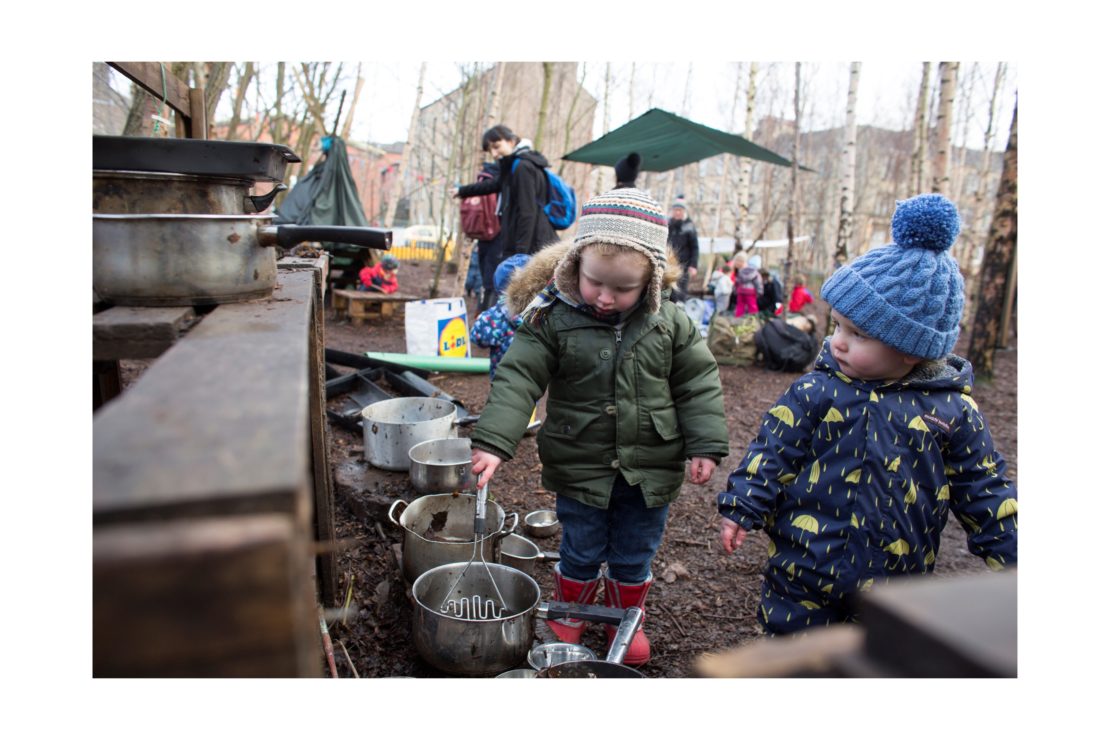
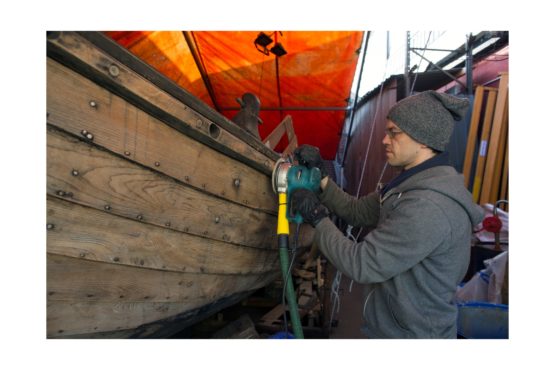
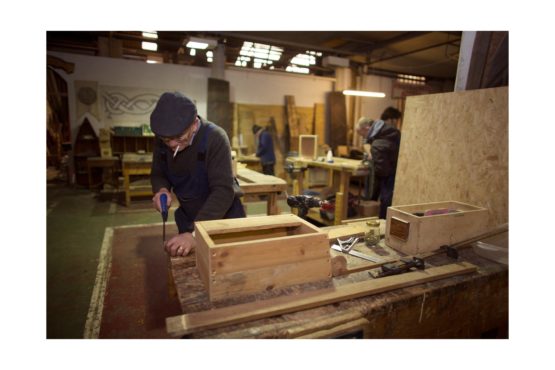
For many in this room the experience of being heard has been life-changing. Michael O'Neill, who now lives in Clydebank but is originally from Govan, started volunteering here after being made redundant and suffering a breakdown of sorts.
"I ended up just sitting in my house looking at the four walls and leaving my wife and two kids to get on with it," he says. Three years later he's working in the workshop, welding, cutting wood, delivery driving and whatever else needs doing. "When you come here nobody judges you and you can speak your mind. If you make a mistake it's no big deal; it's how you learn. For me it's been like therapy. I think if places like this were widespread people would see life differently."
Up on the tiny Isle of Eigg, just south of Skye, Maggie Fyffe, secretary of the Eigg Heritage Trust, knows only too well the difference that community ownership makes. In June 2017, islanders will also celebrate the 20th anniversary of the community buy-out, which saw them go on to run their own affairs and develop the world's first completely renewable energy grid.
"When the island was in private ownership we couldn't do anything," she says. "In the nineties the island was pretty depressed. All that changed after the community buy-out.
"There's now a culture of self-sufficiency which has grown; there are endless small businesses up and running as well as large infrastructure projects." Young people are returning, building homes and having families. The future feels bright.
"We are not perfect," she admits. "Often it's a case of muddling through. But we are an example of how a bunch of ordinary people can run their own community. You don't know what you can do until you try, do you?"
Back at the Children’s Wood, the playgroup is coming to a close. Toddlers clamber off rope swings, reluctantly part with wheelbarrows and wave goodbye to friends before winding their way through the trees on their way home for lunch. Some stop to splash in muddy puddles on the meadow; parents chat as they wait.
The community is now in talks with the council about a 25-year lease and is hopeful that it can start on plans to develop a meeting space, complete with solar panels and compost toilet, a treehouse village and wildflower planting to encourage biodiversity in the meadow.
Their eyes are also on the future; on a time when these pre-schools will watch their own children jump in puddles, hang out with their neighbours and be able to make sure it's the needs of the community that matter, first and foremost. That, campaigners claim, is what local democracy reform is really all about.